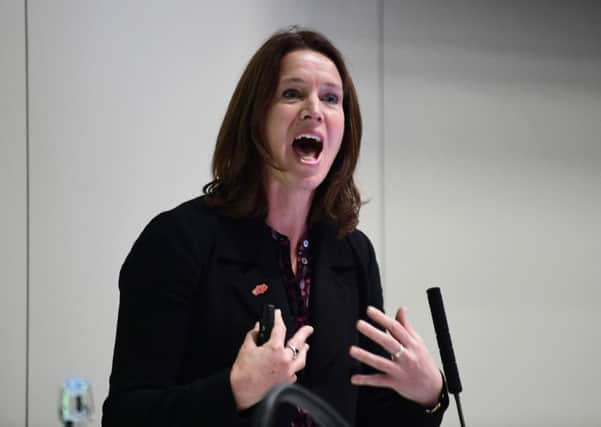The key questions to ask your doctor – Catherine Calderwood


Who would you say was a good communicator? A politician perhaps, an author, a journalist, your doctor? Good communication involves understanding your audience, not making assumptions about existing knowledge and possible misconceptions.
I once met a lady in my antenatal clinic who was taking a number of drugs for medical problems. We discussed the risks to her and her baby in particular from one of the drugs. She told me she was surprised she was pregnant. “I don’t understand how this ever happened. When I started on that drug the doctor said to me ‘you know you can’t get pregnant on that drug, don’t you?’ I thought it was good to be able to stop using any contraception.” The misinterpretation of one small word – the doctor’s “can’t” meant “shouldn’t” – can change the meaning of something, so it’s important that understanding is confirmed.
Advertisement
Hide AdAdvertisement
Hide AdOne day, as a pregnant woman was wheeled off to theatre for an emergency caesarean section, the midwife said to the patient’s husband: “Say goodbye to your wife.” Amid the emergency buzzers, the raised voices and the haste, he assumed she was dying. Yet for us, it was a relatively routine occurrence and neither mother nor baby were in any danger. He remained traumatised for a long time.
I have been talking about health literacy recently and there is often an incorrect assumption about how much people understand about their health. A surgeon recently told me that time after time she sees men in her clinic, life-long smokers with a hoarse voice and weight loss, who have been referred by their GP because of an enlarging neck lump. They arrive unaware the diagnosis may be very serious, potentially throat cancer, and that they have several relatively urgent decisions to make about treatment. That clinic now sends some information prior to people being seen. Patients are warned they may need a series of investigations at the time of the appointment, that there may be something significant wrong and are advised to bring someone with them.
Little information is retained when we are shocked or stressed and a supporter is very helpful. Traditionally, we would have thought sending out such information would worry people, that they wouldn’t want to know in advance that there might be a serious problem. However the evidence is different. The clinic evaluated what they were doing and compared it with people who had not received advance information. Those who had more knowledge coped better with the diagnosis, made decisions on the day and said they felt it was much better than if the conversation had come out of the blue.
Many complaints in the NHS result from poor communication or a lack of it, which can lead to patients thinking there is something to hide, something not done well, or an error. So how do we improve this situation? Undoubtedly starting with children would help and I have tentatively started some conversations to see what could be brought into the curriculum in addition to the current personal, social and health education. I would also encourage all of us to ask questions of our healthcare providers. We should be encouraging these questions: Is this test, treatment or procedure really needed? What are the potential benefits? What are the possible side effects? Are there simpler, safer treatment options? What would happen if I did nothing? Asking the right questions matters. Catherine Calderwood is Scotland’s Chief Medical Officer and is on Twitter @CathCalderwood1